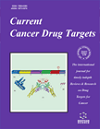
Full text loading...
Cancer is one of the leading causes of mortality and morbidity worldwide. It is characterized by unmanaged cell proliferation and growth, leading to tumour formation with the potential to metastasize to various organs of the human body. Currently, several common therapeutic approaches exist to treat malignancies, including chemotherapy, surgery, and radiotherapy, which can be used to prevent the progression of malignancies. However, these therapeutic approaches often face challenges due to their cytotoxic impacts and various side effects. Ergo is currently researching a new treatment that effectively reduces cancer progression with minimal side effects. Emerging evidence suggests that harnessing herbal sources, which are both accessible and safe, can be useful in improving various disorders, including cancer. Oridonin, a diterpenoid isolated from the traditional Chinese medicinal herb Rabdosia rubescens, has shown significant potential in cancer therapy. Moreover, numerous pharmacological and biological capacities have been attributed to this naturally active compound, such as anti-oxidative, anti-inflammatory, anti-bacterial, and anti-viral influences. This review summarizes the current knowledge on oridonin's mechanisms of action, particularly its effects on autophagy and apoptosis. While apoptosis is a well-established pathway for eliminating cancer cells through DNA fragmentation, autophagy plays a complex role, acting as both a cytoprotective and cell death mechanism depending on the context. We provide a comprehensive evaluation of the relevant studies, highlighting oridonin's potential in cancer control and identifying areas for further research.

Article metrics loading...

Full text loading...
References


Data & Media loading...

